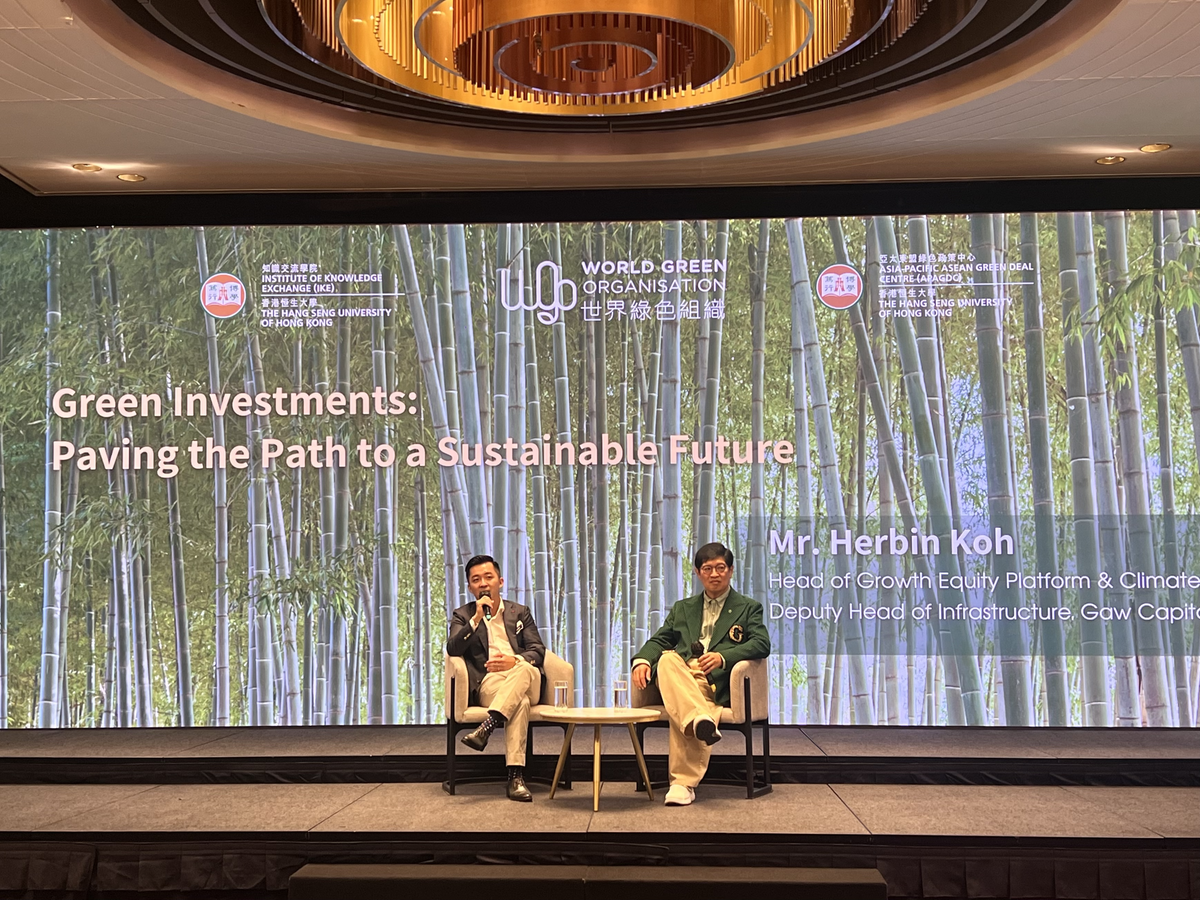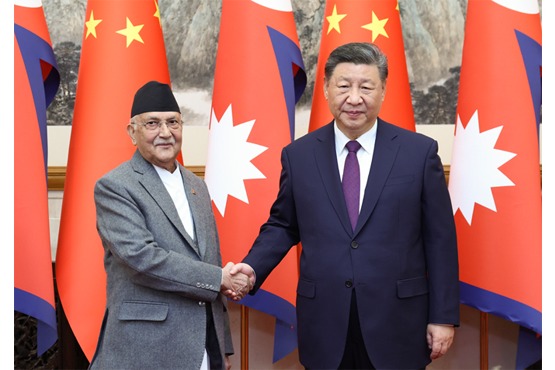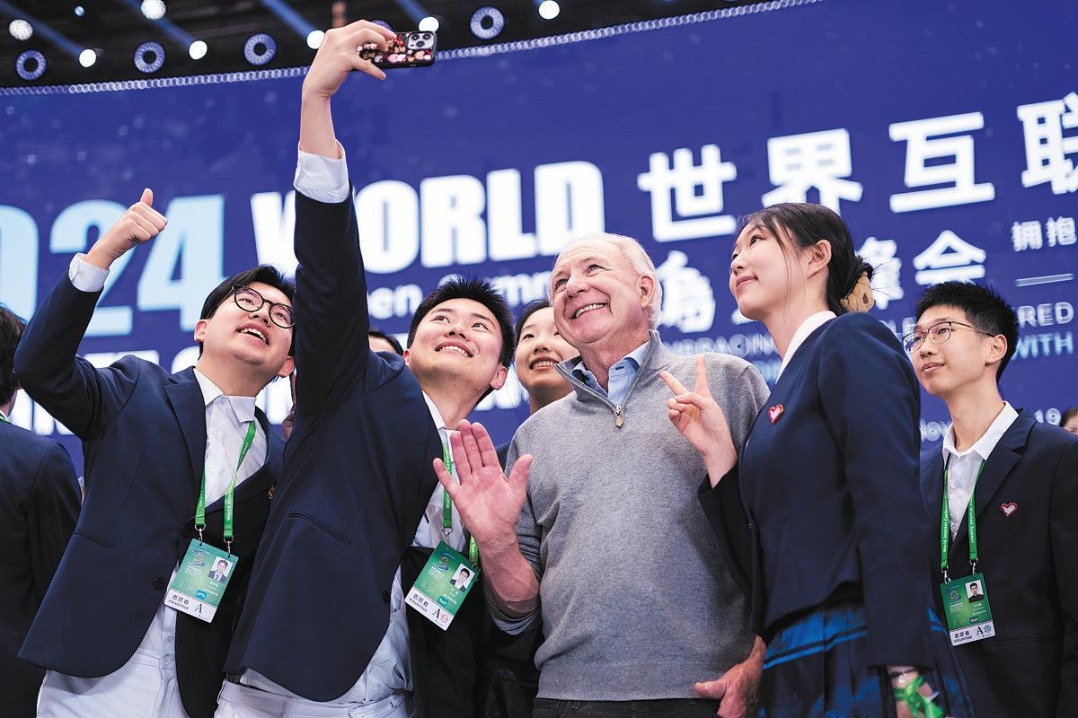HK can help ASEAN make green transition, forum hears


Hong Kong can play a key role in supporting the green initiatives of the Association of Southeast Asian Nations by sharing its experience in environmental, social and governance practices to promote harmonious socioeconomic development.
This was according to industry experts at the Global Green Leadership Forum held in the special administrative region on Dec 3.
Noting that ASEAN is in the early stages of green development with limited ESG awareness and a gap with international standards, Anthony Lam Sai-ho, executive deputy chairman of the Federation of Hong Kong Industries, said this will provide Hong Kong companies the opportunity to use their expertise and mature ESG development experience to support the region's green transition.
According to a survey conducted by the FHKI, 45 percent of its members have already invested in ASEAN, with Vietnam, Thailand, and Singapore among the top destinations.
"Hong Kong can help the ASEAN countries to upgrade their ESG standards and we can be the bridge between the sustainability development of ASEAN countries (and the world)," said Lam, noting the city has unique advantage as an international financial center.
The theme of the forum was Greenism, ESG Evolution: Catalyzing Climate Action for UN SDGs – New Opportunities for Hong Kong's Future. It was co-organized by Hong Kong-based environmental group World Green Organisation, the Institute of Knowledge Exchange and the Asia-Pacific ASEAN Green Deal Centre of The Hang Seng University of Hong Kong (HSUHK).
The forum was held concurrently with WGO's 12th anniversary.
As a service market, Hong Kong has the potential to work with ASEAN countries, said Herbin Koh, head of growth equity platform and climate technology and deputy head of infrastructure of Gaw Capital, a real estate private equity fund management firm.
For example, Spark, an electric vehicle start-up backed by Hong Kong Investment Group, formed in August a partnership with Thai energy company Bangchak to set up 1,000 EV charging stations in stations in Thailand in the next five years.
Speaking from an investor's perspective, Koh said companies also need to think about how to make their "green" solution practical so it can demonstrate a path to profitability.
"ESG is not only about socially good, but will also bring good return," said Lee Ho-tak, managing director of family office Cheah Capital.
Noting China has developed into one of the greenest countries in the past ten years, Lee also talked about the potential of China's renewable industry, particularly solar and wind, and the prospects of the country's electric vehicles.
China is now the world's largest investor in energy transition. By the end of July, China's installed capacity of renewable energy reached 1.68 billion kilowatts, accounting for over 54 percent of the country's total installed capacity, according to the National Energy Administration.
When talking about ESG, it is important to return to the most basic concept because a corporation, which is also a public institution, has to carry out social function by nature, said HSUHK President Simon Ho Shun-man.
"To me, sustainability should cover three dimensions, environmental, social and also economic," said Ho, noting companies must optimize all three values if they want to remain competitive in the market.
Ho said ESG initiatives do not mean huge investment because sometimes even a small amount of cost can generate huge impact with the right strategy.
Despite the hype in ESG over the past few years, the global carbon dioxide emissions are on track to hit a record high this year, said WGO Founder and CEO William Yu Yuen-ping.
There are ways to mitigate this. For example, by using solar and water shield coating technology, up to 95 percent of solar heat radiation can be blocked and indoor temperature can be reduced by 5-10 degrees Celsius, Yu said.
"The environmental issue … is no longer a pure green issue," said Yu. "We need to seriously handle this because that will bring implications to our asset loss and economic loss."
Kenneth Kwong Ka-kei, assistant professor and director of HSUHK's Chinese Family Succession Research Centre, said he encourages companies to take a new angle to think about ESG in terms of how it will affect consumers' lifestyle and behavior.
This is because in contrast to how corporates view ESG as a strategy for long-term development, consumers think more about the way of living, said Kwong, citing a research done by the center.
- HK can help ASEAN make green transition, forum hears
- Xizang reaches full enrollment in special education
- Giant panda Fu Bao in good spirits after physical examination
- Shanghai sees latest drug innovation in intestinal rehab
- China's new guidelines for writing the national anthem in Braille
- Museums leaders gather in Shanghai to share insights into civilization exchanges





































